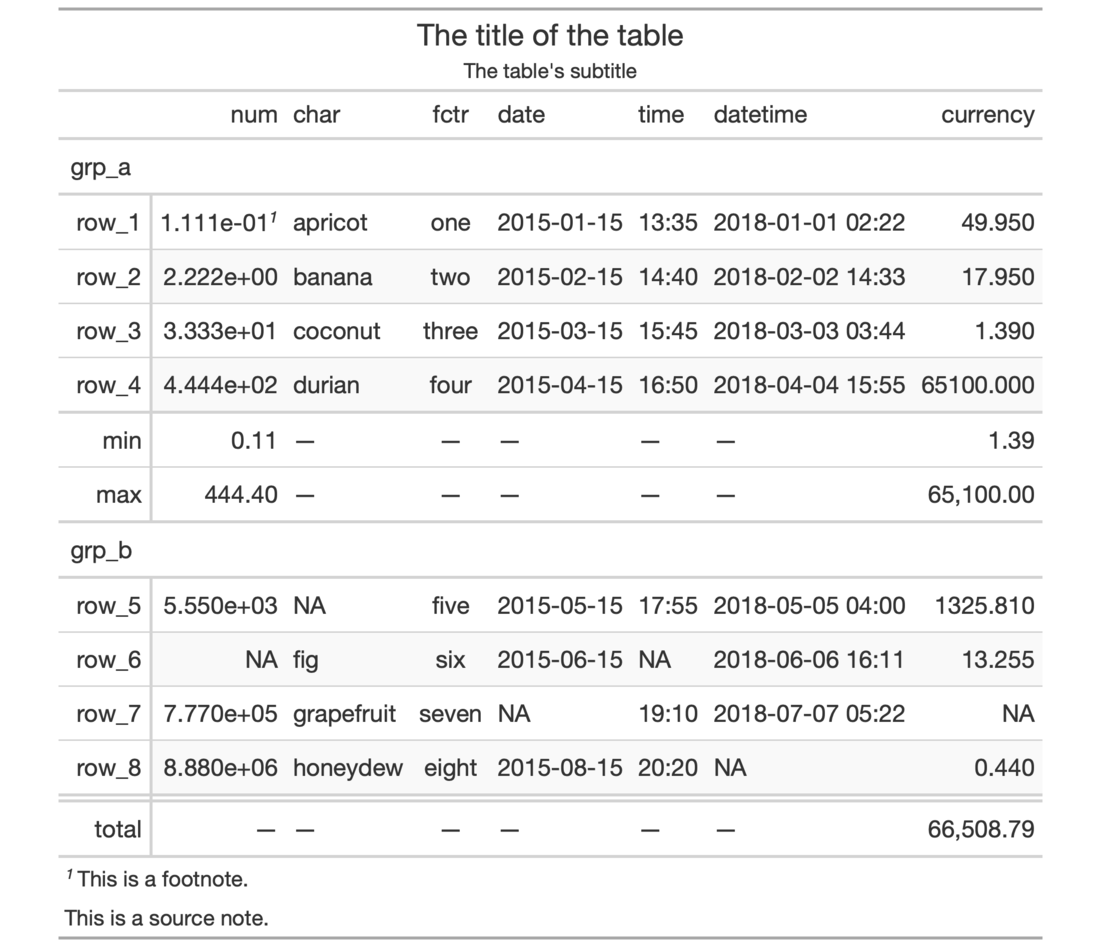By default, a gt table does not have row striping enabled. However, this
function allows us to easily enable or disable striped rows in the table
body. This function serves as a convenient shortcut for
<gt_tbl> %>% tab_options(row.striping.include_table_body = TRUE|FALSE).
opt_row_striping(data, row_striping = TRUE)
Arguments
| data | A table object that is created using the |
|---|---|
| row_striping | A logical value to indicate whether row striping should be added or removed. |
Value
An object of class gt_tbl.
Figures

Function ID
9-2
See also
Other Table Option Functions:
opt_align_table_header(),
opt_all_caps(),
opt_css(),
opt_footnote_marks(),
opt_table_font(),
opt_table_lines(),
opt_table_outline()
Examples
# Use `exibble` to create a gt table with # a number of table parts added; next, we # add row striping to every second row with # the `opt_row_striping()` function tab_1 <- exibble %>% gt(rowname_col = "row", groupname_col = "group") %>% summary_rows( groups = "grp_a", columns = vars(num, currency), fns = list( min = ~min(., na.rm = TRUE), max = ~max(., na.rm = TRUE) )) %>% grand_summary_rows( columns = vars(currency), fns = list( total = ~sum(., na.rm = TRUE) )) %>% tab_source_note(source_note = "This is a source note.") %>% tab_footnote( footnote = "This is a footnote.", locations = cells_body(columns = 1, rows = 1) ) %>% tab_header( title = "The title of the table", subtitle = "The table's subtitle" ) %>% opt_row_striping()